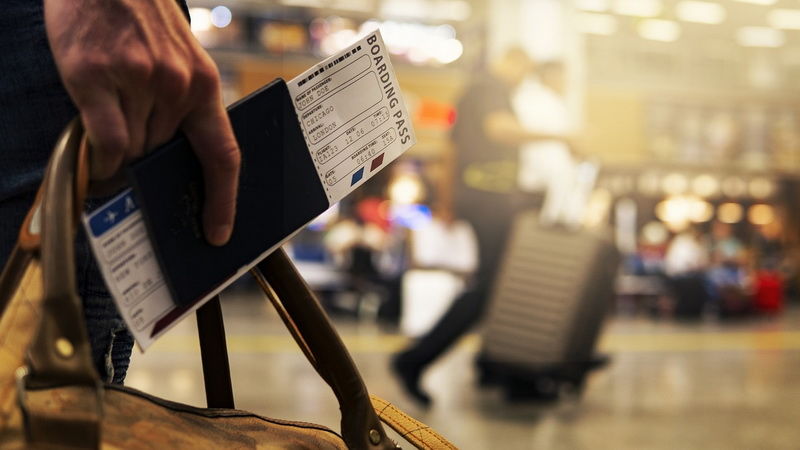Thai Tourism Ministry Considering Extension of Tourist Visas
Thailand, renowned for its rich cultural heritage, stunning landscapes, and vibrant street life, has long been a favorite destination for travelers worldwide. In recent years, the Thai government has been actively exploring ways to enhance its tourism sector, recognizing its pivotal role in the nation’s economy. One significant initiative under consideration is the extension of tourist visas, aiming to attract a broader spectrum of visitors and encourage longer stays.
The Current Visa Landscape
As of June 2025, Thailand offers various visa options catering to different types of travelers:
-
Visa Exemptions: Nationals from 93 countries can enter Thailand without a visa for stays up to 60 days for tourism purposes. This policy has been instrumental in boosting short-term tourism.
-
Visa on Arrival (VOA): Citizens from 31 countries can obtain a VOA, allowing stays of up to 15 days. This facility is particularly popular among travelers from neighboring countries.
- Special Tourist Visa (STV): Introduced during the COVID-19 pandemic, the STV permitted long-term stays of up to 270 days. While initially extended, the program concluded in September 2022.
Rationale Behind the Proposed Extension
The Thai Ministry of Tourism and Sports is contemplating extending tourist visas to bolster the country’s tourism sector. Several factors underscore this consideration:
-
Economic Impact: Tourism is a cornerstone of Thailand’s economy, contributing significantly to GDP and employment. Longer stays can lead to increased spending, benefiting local businesses and communities.
-
Competitive Edge: Neighboring countries have implemented extended visa policies to attract tourists. To remain competitive, Thailand is evaluating similar measures.
- Diverse Tourist Demographics: Extended visas can attract a more diverse range of tourists, including digital nomads, retirees, and long-term travelers, enriching the cultural tapestry of the nation.
Potential Benefits of Extended Tourist Visas
Implementing longer tourist visas could yield several advantages:
-
Increased Tourism Revenue: Longer stays often translate to higher spending on accommodations, dining, and activities, providing a substantial boost to the economy.
-
Enhanced Cultural Exchange: Extended interactions between tourists and locals can foster deeper cultural understanding and exchange.
- Sustained Employment: A thriving tourism sector can lead to job creation in hospitality, transportation, and related industries.
Considerations and Challenges
While the benefits are promising, several considerations must be addressed:
-
Infrastructure and Resources: Accommodating longer-term tourists requires adequate infrastructure, including reliable internet connectivity and healthcare services.
-
Environmental Impact: Increased tourism can strain natural resources and ecosystems. Sustainable practices must be prioritized to preserve Thailand’s natural beauty.
- Security and Management: Extended stays necessitate robust immigration controls and monitoring to ensure national security and compliance with visa regulations.
Comparative Analysis: Thailand and Its Neighbors
To contextualize Thailand’s potential policy shift, it’s insightful to examine neighboring countries:
-
Malaysia: Offers a "Malaysia My Second Home" program, allowing long-term stays for eligible individuals.
-
Indonesia: Provides a "B211A" visa, permitting stays up to 180 days for tourists and business visitors.
- Vietnam: Has introduced e-visas for citizens from 80 countries, facilitating easier access for tourists.
These initiatives highlight a regional trend towards accommodating longer stays to attract a diverse tourist base.
The Digital Nomad Trend
The rise of digital nomadism presents a unique opportunity for Thailand. Professionals working remotely seek destinations with reliable internet, affordable living costs, and vibrant cultures. By offering extended visas tailored for digital nomads, Thailand can tap into this growing market segment.
Potential Impact on Local Communities
Long-term tourists can positively influence local communities:
-
Economic Diversification: Increased spending can support local artisans, farmers, and small businesses.
-
Cultural Enrichment: Interaction with tourists can introduce new ideas, cuisines, and traditions, enriching local culture.
- Community Development: Sustained tourism can fund infrastructure projects, educational programs, and healthcare services.
Implementation Strategies
To effectively implement extended tourist visas, the following strategies are recommended:
-
Stakeholder Engagement: Collaborate with local businesses, community leaders, and tourism experts to design policies that benefit all parties.
-
Sustainable Practices: Develop guidelines to ensure tourism growth does not compromise environmental sustainability.
- Marketing and Promotion: Highlight the benefits of extended stays to attract target demographics, such as digital nomads and retirees.
Conclusion
The Thai Ministry of Tourism and Sports’ consideration of extending tourist visas reflects a strategic move to rejuvenate and diversify the nation’s tourism sector. By carefully weighing the benefits against potential challenges and implementing thoughtful policies, Thailand can enhance its appeal as a destination for long-term travelers, contributing to economic growth and cultural exchange. As the global travel landscape evolves, Thailand’s proactive approach positions it to remain a top choice for tourists seeking both adventure and a home away from home.
Note: This article is based on information available up to June 2025. For the most current visa policies and travel advisories, please consult official Thai government sources or the nearest Thai embassy or consulate.

